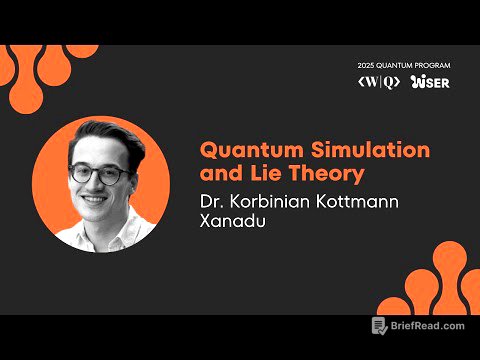TLDR;
This video serves as a primer on the classic Doctor Who series, designed primarily for fans of the new series. It offers a concise overview of the first seven Doctors, highlighting their key characteristics, notable companions, and significant introductions to the Doctor Who universe. The guide suggests specific episodes for each Doctor to help viewers decide which stories to explore further.
- Overview of the first seven Doctors
- Key characteristics, companions, and introductions for each Doctor
- Episode suggestions for each Doctor
Introduction [0:16]
The video introduces a series of almost 30 videos celebrating Doctor Who's 50th anniversary by exploring the classic series. It's designed as a prep for new Doctor Who fans to decide which classic stories to watch, with one short video per season. This video serves as a brief overview of classic Doctor Who. It also addresses the issue of missing episodes, noting that reconstructions with still images are used in place of lost footage.
First Doctor [1:42]
The First Doctor is characterized as old and crotchety, lacking the moderating influence of humanity. He is portrayed as yelling, kidnapping people, and threatening others. His first companion was Susan, implied to be his granddaughter, though some theories suggest she was the granddaughter of the Other from Gallifrey's past. During his three-year tenure, the Doctor, the TARDIS, the Daleks, the Monk, the Cybermen, and regeneration were introduced. The episodes "An Unearthly Child," "The Aztecs," or "The Time Meddler" are recommended.
Second Doctor [2:35]
The Second Doctor was the first overtly comedic incarnation, acting like a big kid while concealing a sharp mind. He is a favorite of several later Doctors. He was eccentric and funny. Lasting three seasons, his era introduced Jamie, the sonic screwdriver, the Doctor's love of jelly babies, the Macra, the Great Intelligence, the Brigadier, UNIT, the Ice Warriors, and the Time Lords as a group. "The Mind Robber" and the last episode of "The War Games" are recommended.
Third Doctor [3:21]
The Third Doctor spent much of his time trapped on Earth, assisting UNIT with alien invasions. The show was retooled to include a larger recurring cast, a home base, and overarching plots. This Doctor was suave, energetic, and classically heroic, driving fast cars, knowing martial arts, and dressing in a distinctive style. Lasting five seasons, his era introduced the Autons, the Silurians, the Master, Sarah Jane Smith, the Sontarans, the name of Gallifrey, and the term regeneration. The episode "Inferno" is recommended, despite its poorly designed monsters.
Fourth Doctor [4:18]
The Fourth Doctor is the most famous incarnation. He was weird and the least human, hating authority and defying it whenever possible. His era can be divided into three phases: gothic horror sci-fi, comedy, and straight science fiction. Lasting seven seasons, his era introduced the Zygons and K9. "The Horror of Fang Rock" is recommended.
Fifth Doctor [5:16]
The Fifth Doctor was the first very human Doctor, young, gentle, and kindly. He was the first since the First Doctor to have a companion die, and his lack of celebration suggests indifference. He was unguarded and open, not pretending to be harmless. He later reappeared in "Time Crash." Lasting three seasons, his era destroyed the sonic screwdriver and featured the last pure historical story. "The Caves of Androzani" is recommended.
Sixth Doctor [6:18]
The Sixth Doctor was a reaction against the Fifth, attempting to recreate the First Doctor's persona. He was theatrical, melodramatic, blustery, arrogant, and fanatically devoted to doing good. His era was unsettled, with the show put on hiatus and the writing and production suffering. Lasting two seasons, his era introduced the Valeyard. "Revelation of the Daleks" or "Vengeance on Varos" are recommended from his television stories, while his Big Finish audio adventures are highly praised.
Seventh Doctor [7:22]
The Seventh Doctor started as a crappier rerun of the Second, short and not taken seriously, intended to be light-hearted. Later, with Cartmel, he became manipulative and constantly planning. He played chess with gods and rarely had to upend the board to win. He was the final Doctor of the classic series. Lasting three seasons, his era introduced the idea of a working-class companion from London. "The Curse of Fenric" and "Ghost Light" are recommended.
Eighth Doctor [8:19]
The Eighth Doctor is not included in the series because his movie is considered an island between classic and new Who. While he is sometimes placed in classic Who, he is not included here. His movie is a good starting point for those familiar with the new series, but it is not very good and often makes little sense.




![[EXPLAINED🍄] AI Agents vs. Workflows](https://wm-img.halpindev.com/p-briefread_c-10_b-10/urlb/aHR0cDovL2ltZy55b3V0dWJlLmNvbS92aS94cWNsOWRBQWtDMC9ocWRlZmF1bHQuanBn.jpg)




